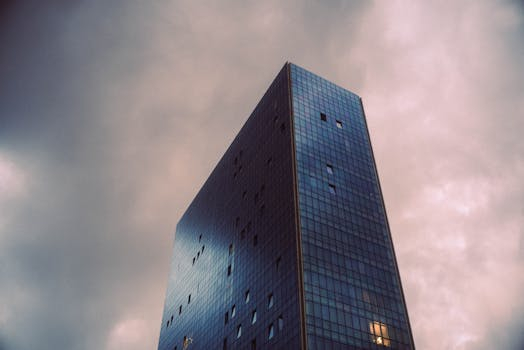Post-Pandemic Office Conversions: Condo Risks in Old Corporate Towers
The COVID-19 pandemic has drastically changed the way we live, work, and socialize. With remote work becoming the norm and businesses downsizing their physical office spaces, the real estate market has been affected in unexpected ways. In particular, old corporate towers are facing an uncertain future as many look to convert these buildings into condominiums. While this may seem like a lucrative opportunity for developers and investors, there are potential risks that must be taken into account. In this article, we will explore the concept of post-pandemic office conversions and the potential condo risks in old corporate towers.
The Rise of Post-Pandemic Office Conversions
As companies continue to embrace remote work and flexible office arrangements, the demand for traditional office spaces has decreased significantly. This has left many corporate towers with vacant floors and struggling to find tenants. In response to this shift, developers are eyeing these buildings as potential opportunities for office-to-condo conversions.
Converting an old corporate tower into a condominium may seem like a straightforward process, but there are several factors that must be carefully considered. For one, the location and surrounding amenities must be appealing to potential buyers. In addition, the existing infrastructure and layout of the building may need to be completely reconfigured to accommodate residential units.
The Potential Condo Risks in Old Corporate Towers
While post-pandemic office conversions may seem like a win-win for both developers and buyers, there are certain risks involved that must be carefully evaluated. One of the biggest concerns is the uncertainty of the future demand for office spaces. As remote work continues to gain traction and the need for traditional office spaces decreases, there is a chance that the conversion may not be profitable in the long run.
Another risk to consider is the potential for higher maintenance costs in an old corporate tower compared to a newly built condominium complex. Many of these buildings were not designed with residential units in mind and may require significant upgrades to meet the standards and regulations for residential living. This could result in higher condo fees for buyers and ultimately impact the value of the units.
The Importance of Proper Due Diligence
Before embarking on a post-pandemic office conversion, it is crucial for developers to conduct thorough due diligence to minimize potential risks and ensure the success of the project. This includes carefully evaluating the location, infrastructure, and potential demand for both office and residential spaces in the area. It is also important to consider the potential impact on the existing office tenants and their leases if the conversion is not 100% successful.
For buyers, it is equally important to conduct due diligence when considering purchasing a unit in an old corporate tower converted into a condominium. This includes researching the developer’s track record, reviewing the condo declaration and bylaws, and seeking advice from a real estate lawyer to fully understand any potential risks associated with the conversion.
In Conclusion
The COVID-19 pandemic has certainly caused a shift in the real estate market, leading to a rise in post-pandemic office conversions. While old corporate towers may seem like a prime opportunity for developers and buyers, it is crucial to carefully evaluate all potential risks and conduct thorough due diligence. By doing so, both developers and buyers can mitigate potential risks and ensure the success of these conversions in a post-pandemic world.









